Abraham Riesman is the author of True Believer: The Rise and Fall of Stan Lee, set for release on February 16th from Penguin Random House. As a seasoned journalist, especially for New York magazine and Vulture, Riesman has earned a reputation as one of the top culture writers in comics and comics-adjacent spaces. Riesman’s debut book, a thorough, painstakingly-researched biography of Stan Lee, is already receiving a great deal of buzz. High-profile outlets like The New Yorker and Forbes promise that it “shatters the myths surrounding the Marvel icon.” Even as a comics history enthusiast who’s long been familiar with the open secret that Stan “The Man” Lee was almost certainly not responsible for many of the things he claimed to be, this book was full of surprises: some funny, some sad, some that were just plain weird.
In this first part of a candid interview with Riesman, he shared his research methods, the challenges of writing a warts-and-all biography of such a beloved pop culture figure, and much more.

Gregory Paul Silber: I think it’s appropriate actually to start with the somewhat rote question of: could we talk about the genesis of the book?
Abraham Riesman: It’s pretty straightforward. It’s a funny story actually. In 2015, an editor at New York magazine, David Wallace Wells, walked over to my desk and he had a galley copy of Stan Lee’s 2015 graphic memoir. It was about to come out. He puts it down on my desk and says “you should do something with this.” I thought he meant I should do a feature about it. So I started doing research and reaching out to his publicist for the book, see if I can interview him and blah blah blah. I really made a lot of headway, and about a week later, I went to him and I said, “hey, I started working on this and it’s going really well.” And he was like, “what are you talking about?” And I said, “you said I should do something with this.” And he’s like “I meant you can do, like, a short review of it.” [Laughs] Ooh, okay.
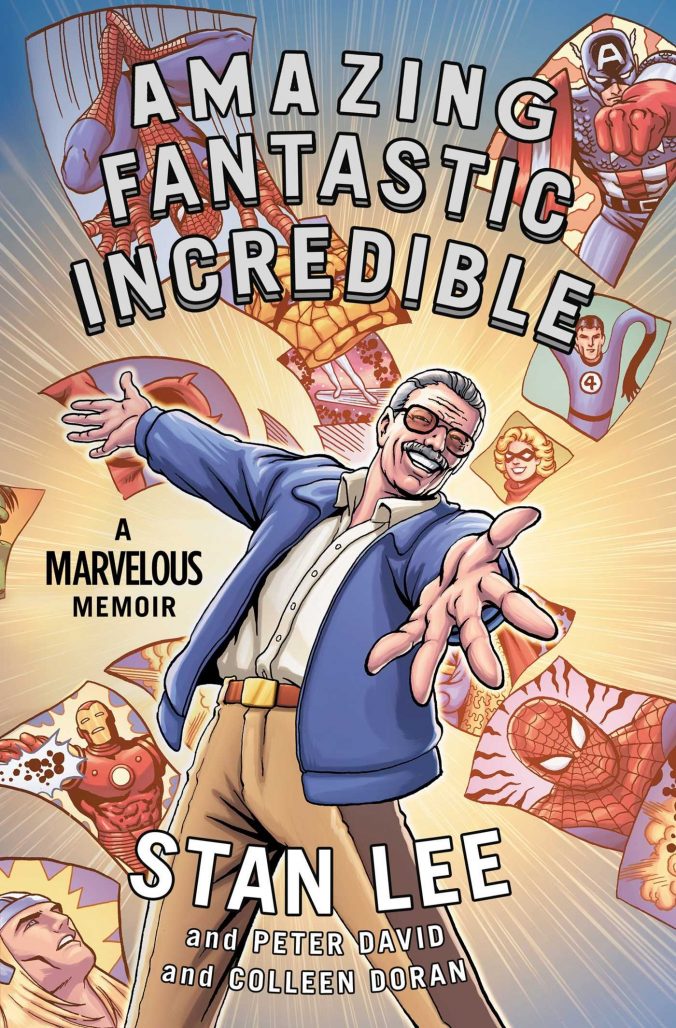
But he was like, “this sounds interesting. So see what you can find.” God bless him, this project would not have happened without him in 2015 suggesting that I do something about the book, which led to me doing a feature about Stan that ran in early 2016. February 2016! This would be almost exactly five years later. It was more like a reported essay about Stan. I mean, I interviewed a lot of folks, but it was also sort of in this waxing, philosophical mode. But people read it and flash forward to November 2018, Stan died and this editor at Crown Publishing, the imprint of Penguin Random House, got in touch with my agent and said “Stan just died and we want to do a biography of him. Do you think Abraham would be interested in expanding on the profile he did in 2016 and writing the biography?”
Long story short, that worked out. I was very flattered to be asked. I put together an outline and didn’t have to do a full proposal-proposal, which was very fortunate for me. The higher-ups liked it, so it got greenlit. It did initially start out as a complete misunderstanding back in 2015. But I think it’s one that’s resolved itself in an appropriate way.
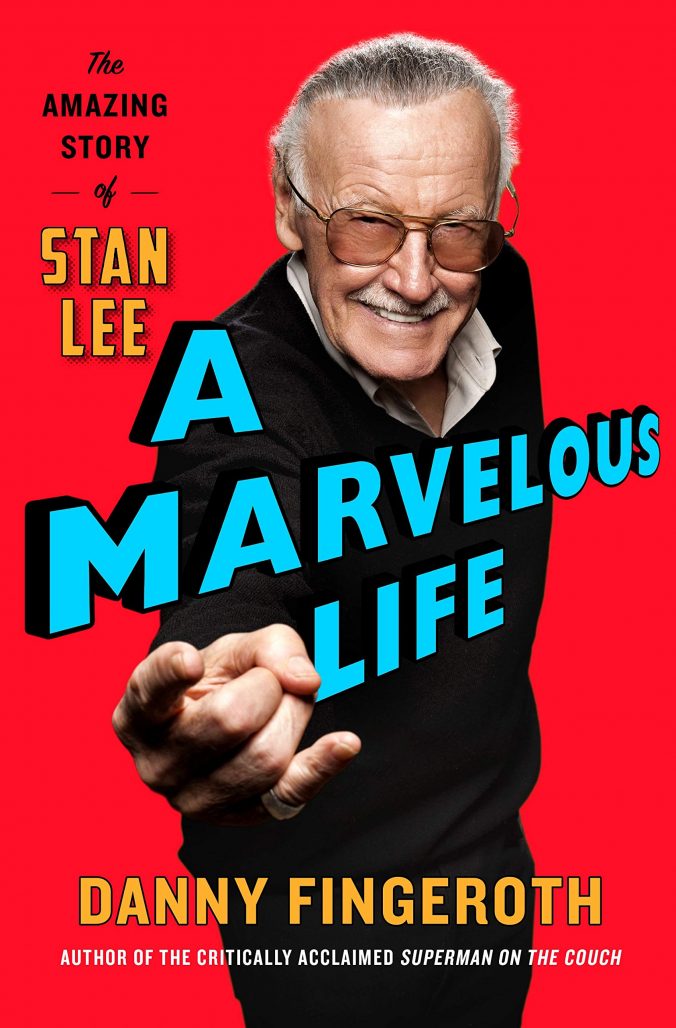
Silber: I remember talking to you about it a few years ago, and you mentioned how you’ve read a couple of other Stan Lee biographies in some way, shape, or form. You mentioned his attempts to write a memoir in the book itself. Can you break down what it is about this book that sets it apart from all the other reams that have been written about him?
Riesman: Well, I don’t want to disparage anybody else. I had a different approach than a lot of the other folks had. Other Stan bios are great. There’s a lot of interesting stuff in all of them. Stan’s memoir, I can’t speak of highly when it comes to factual correctness, but as a historical document, it’s enormously interesting. What I hope my book does that hasn’t been done before is offer a pretty complete picture, because some of the stuff was written after Stan passed away, so we’re up to date. It has the full arc. But also, I came at this using as many of the journalistic tools that I have accumulated in my 15 years in this industry as I could in order to investigate this guy’s life, which… again, I don’t want to speak ill, but previous efforts had often—not always, but often—not really been serious journalistic efforts. They’ve been [about] analyzing his work and talking about why he was great.
So I did my best to use the tools I had and the perspective I had as a longtime reporter on the comics industry and the superhero industry, but also in the general reporting which I’ve done in a lot of areas. All that stuff, I hope, came together to produce something that is different even for people who have read the previous chronicles of Stan’s life.
Silber: The word I kept coming back to as I was reading it was “holistic.” It’s pretty stunning, actually, the number of people who are quoted or whom you had somehow dug up recordings from. We really get a perspective of Stan Lee from, it seems like, pretty much everyone who came into contact with him—
Riesman: Not everyone. There were a lot of people who wouldn’t speak to me, or declined to, I don’t want to make that sound dramatic. Obviously there are people who are no longer with us who I would have been keen to talk to, but I didn’t have a chance.
Silber: I realize that you couldn’t speak with everyone who you would have liked to have spoken to for one reason or another, but I’d love to know what your methodology was in terms of finding a fact—or claim as is often more accurate with Stan—about his life and then working backwards with “okay, who can I go to to verify?”
Riesman: Yeah, there’s no magic to it…. you look at something that Stan said. You try to triangulate it based on when he said it, when the events he’s describing occurred, and if he’s describing something in the past, what the context was. Then you can start asking yourself questions like, “Who can corroborate this, or who could at least have a perspective on the way Stan thought about these things?” Then it’s a matter of having a subscription to a White Pages premium account and you start cold calling people. Actually more recently, I have started to fall in love with Spokeo, which is similarly a place you can look up phone numbers.
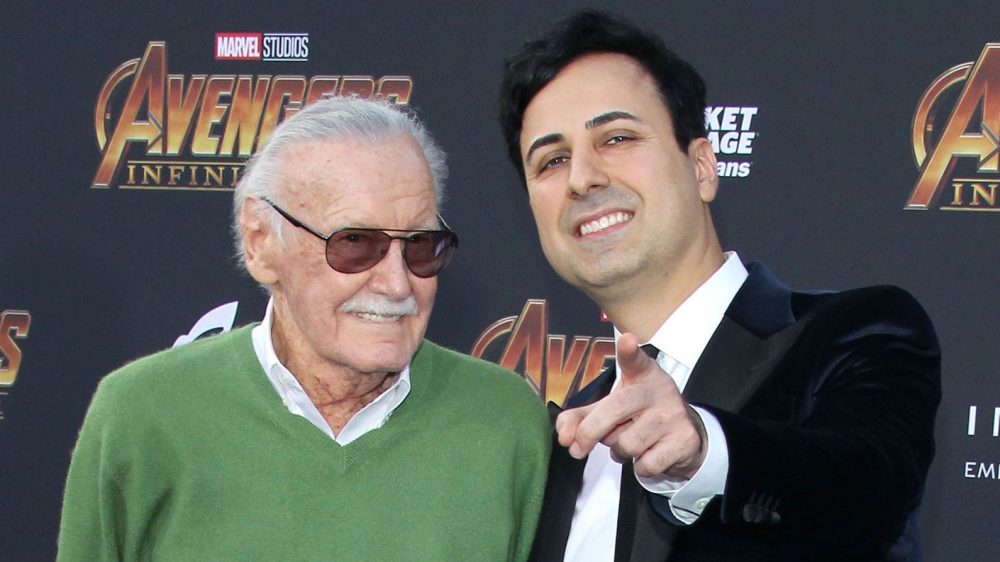
I would make calls, I would network, I would ask people who I already interviewed if they could help me get in touch with people. He’s a complicated figure, but one person who was very helpful in that regard was Keya Morgan, the man who was involved with Stan in a business and personal capacity in the last few years of his life. Keya is a big networker. Right from the very beginning, without me really even asking, he went out of his way to set me up to talk with various people. That was enormously helpful because he had access to… sort of the private Rolodex. I’m very grateful for that. You start reaching out to people, you try your best to figure out what the facts are. But I hope I make clear as much as I can in the book that all of this stuff is the work of history and journalism.
You’re trying to recreate something you can’t actually recreate. It only happened once, and everything else is going to be a pale copy of it or a distortion. So you just do your best. You try to offer as many perspectives as you can. You cite whose perspectives are being offered as opposed to taking any one person’s account as gospel. You want to remind the reader with little nudges that these are things being said by individual people who are making claims as opposed to just saying, “well, you know, this person told me this thing, so I’m not even going to have to cite them. I could just say this is what happened, you know, because this one person told me this.” I’ve been guilty of that in the past. Unfortunately, that’s often how journalism works. You use your best guesses to see, “okay, does this seem like something that is credible or not?” And you cross your fingers, because you get into all kinds of philosophical questions about the knowable truth.
You can’t ever drill down and say virtually anything is completely reliable. There are schools of journalists and historians who say, “if you did the documentation, documentation is more reliable than people’s accounts and people telling you things.” But then you have to remember that clerical errors happen all the time. You’re looking at a document and it could be completely misleading you. There could be another document that redacts the first document. You’re really going out on a limb every time you’re making any kind of claim in a book like this. I felt like I had to try as hard as I could and hopefully I didn’t get anything egregiously wrong. Well, we’ll find out. But I did my best.
Silber: I think with any real journalistic pursuit, there is that whole element of “you can’t take anything at face value.”
Riesman: No, of course not.
Silber: One thing that constantly ran through my mind as I was reading it is, it really can’t be overstated how much Stan’s memory and legacy looms large for anyone who’s interested in superhero comics. Whether you’re a modern fan or not, whether you’re more of a Jack Kirby partisan or not, whatever, he is just such a titanic figure. Was there ever any hesitation or concern on your part when it came to just the fact that you are presenting him as a complicated, flawed person like we all are, while he is a god to a lot of fans?
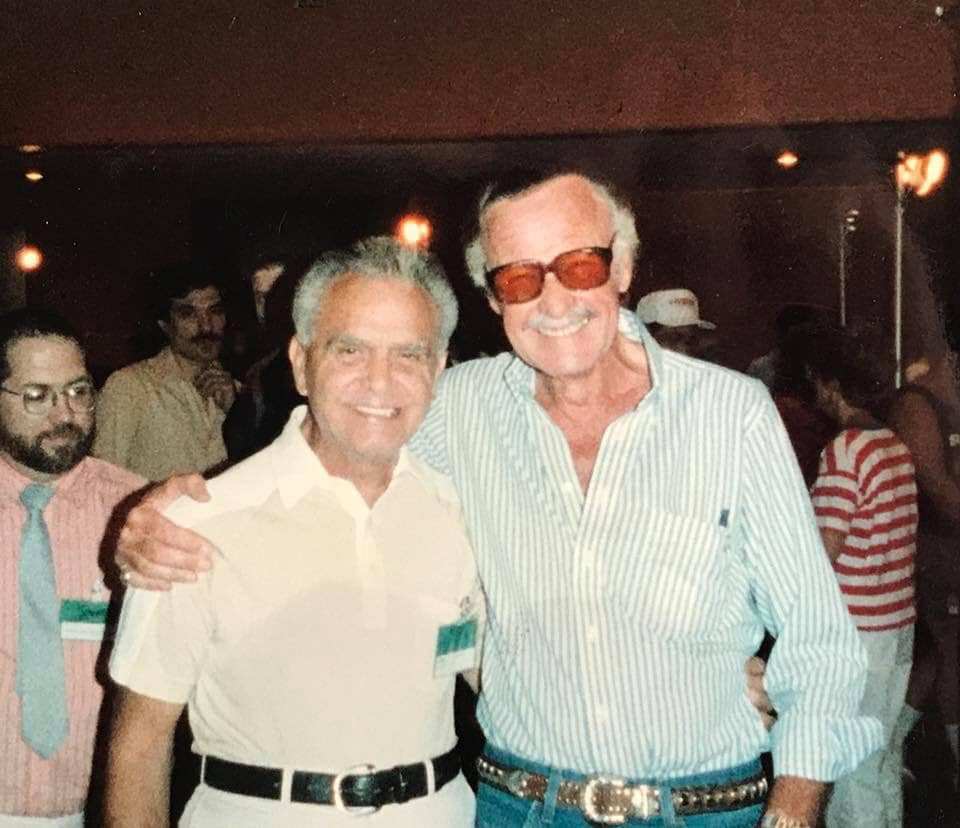
Riesman: It’s a tough balance to strike. I mean, I guess I just always opted on the side of being honest as opposed to trying to provide an illusion of balance, or meeting somewhere in the middle. I think people often want to soften criticism of Stan, both because they’re affectionate towards him, and because it seems inconceivable that this guy who’s so famous for doing X, Y and Z might not have actually done X, Y and Z. Or maybe he did Y, but he didn’t do X and Z. People are not really aware of a lot of this, and the stuff they are aware of, they tend to sort of say, “well, maybe that’s true. The truth is probably somewhere in the middle.”
I decided to just do away with that and say, “What’s the best judgment call I can make about this given datapoint, and how can I interpret it?” And just let the interpretation be what it was. That was the only way I could live with myself. I wasn’t doing a hatchet job. If stuff came out negatively, great. If it was positive. That’s also part of the tapestry. I wasn’t seeing. I wasn’t trying to like, find balance. I was trying to just be as honest as I could.
It is not a hatchet job. It is not me trying to tear him down or sneer at anybody for liking him or anything like that. I back up everything I say with a lot of evidence, or at least I credit exactly where it’s coming from so you can come to your own conclusions about its veracity. So hopefully I’ll be able to circumvent people coming at me. But, you know, he’s a beloved figure. I’m rolling the dice.
Silber: There’s that kind of “what, that can’t possibly be true. How could it?”
Riesman: Right, yeah. It’s so deeply ingrained and held up as this article of faith that Stan is the progenitor of the Marvel Universe. That’s just something that is axiomatic. How do you know who Stan Lee is? “Well, because he was the guy who came up with the Marvel Universe and invented all those characters.” That’s the raison d’etre for why he’s in your brain. Then you have to confront the idea that, like, there’s literally no evidence of it.
I’m not hiding anything. I’m not trying to offer an interpretation of anything. I’m just saying if anyone can ever find any evidence that Stan was the progenitor of these ideas, I would love to see it. And a lot of other people would, too. And I’m sure Disney would be especially happy to see you because that would make their claim even more solid. But it just doesn’t exist. There’s no diary entries, there’s no presentation boards. There’s no contemporaneous conversations with reliable third parties. Or unbiased, rather, third parties. It’s just not there. And I’m not saying Jack Kirby necessarily came up with all of it on his own, but I just think people need to prepare for themselves in their heads to deal with the ambiguity and accept that there is a chance that Stan really wasn’t responsible for creating these characters.
I think that’s hard for a lot of people to deal with, not just emotionally, but because, like I said, it seems so preposterous that somebody could be so famous for all this and for there to be no evidence and in fact, a lot of counter-evidence that has to do with him creating this stuff. So I let the reader judge for themselves because I don’t know and nobody knows. Unfortunately, life is full of ambiguities and people don’t like to hear that either. It’s a hard story to process for a lot of reasons. And I just hope it’s received as something that was truthful to the best of its ability.
Silber: I think anyone who reads this will find this to be true. It’s immediately clear that you put the work in from an angle of… objectivity in such a silly word. But, you know, fact-finding. I gotta say, I went into this really thinking I was emotionally prepared to some degree. I think I’m more well-versed than most people when it comes to the injustices of superhero comics creation historically. I had recently watched the Batman and Bill documentary…
Riesman: Oh yeah, yeah.
Silber: When asked about the controversy regarding his creation of Batman, Bob Kane would often say things along the lines of, ‘Well, it has my name on it. I created Batman because I’m Bob Kane and it says ‘Batman created by Bob Kane.’’
Riesman: Yes, exactly. Yes.
Silber: And reading this book, it’s like… I went into it fully prepared, I thought, to be like, “okay, yes. Stan did not, probably, do most of the things that he has gotten credit for.” And yet I still found myself surprised. It’s hard not to be a little hurt by “oh my G-d, even this moving thing that he said perhaps was not something that is based in fact, or is something that he himself came up with.” I’m certainly not putting you down or the book down. It just is heartbreaking.
Riesman: Yeah, it’s a sad story! I mean, it’s heartbreaking for different reasons. And I’m not saying that like, my book is so great. I’m just saying the story of Stan Lee is very sad in a lot of ways. One of them is all the tragic stuff that happened later in his life. And the other is, as I say in the book, he was the guy who was fueled more by ambition than talent. He was not actually all that great at writing in a lot of ways. I know that sounds like a broad claim, but if you look outside of his comics work, which people generally don’t do, you’ll find that objectively, most of it’s really not very good. I mean, these are like, film treatments or failed comic series at weird publishers and animated movies that he consulted on, all of this stuff. It’s not actually all that good.
Once you start confronting that, then you start confronting the fact that, literally, the only period in which he was doing good writing, that the world agreed was good and that he thought was good– because side-note he was doing stuff before the 60s that even he hated and people are not impressed by all that much these days–there’s this brief period in the 60s where everything is just firing on all cylinders and he becomes world famous as a writer.
How could this guy who’s written work before and after this brief stretch possibly be the great writer that everybody has assumed him to be? Well, I’m not saying he necessarily wasn’t, because stranger things have happened than somebody having a really crazy hot streak. So maybe in all likelihood it could have been that. But you have to contend with the fact that even you as a reader and fan of Stan Lee will look at everything he did outside of those comics and most likely feel disappointed or feel like, “well, that’s not really all that objectively great.”
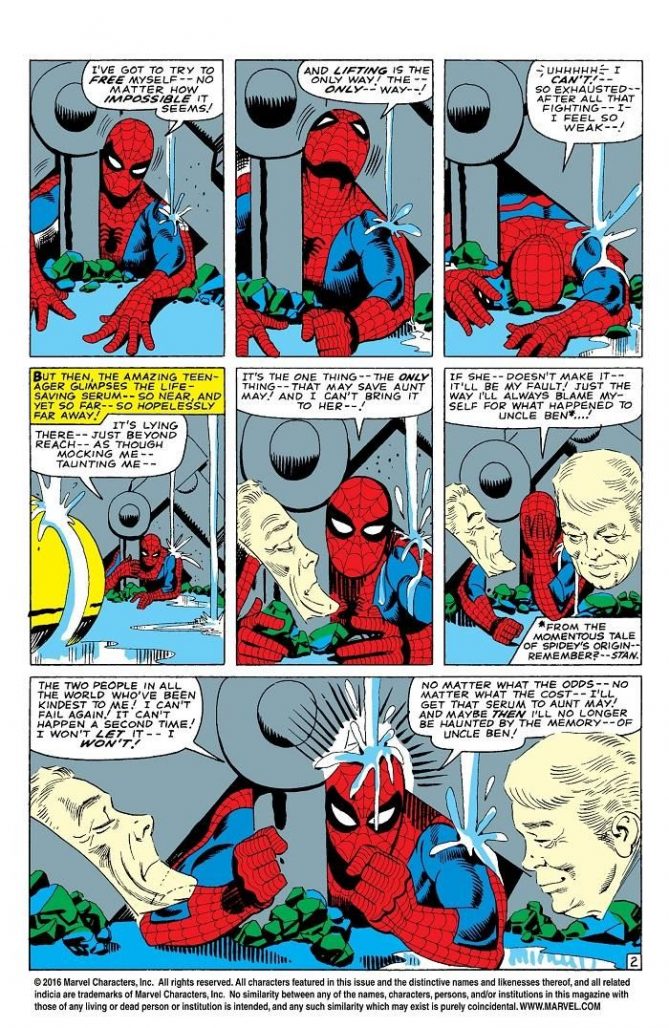
But those comics are great. The Marvel Comics from the ’60s are fucking dynamite. Even the ones that don’t quite work anymore, they’re never dull. They’re always bizarre and often shading into, like, folk art or outsider art. And the stories have these primal elements that are very interesting and could be very moving when executed well. All that stuff’s great. You just have to grapple with the absence. That kind of excitement on either end of his career, by his own admission, in some cases.
Silber: There’s a quote I wanted to bring up, because to me, this represents such a core thing that I’ve always felt about Stan Lee. You’re talking about how, despite all the other controversies, he was a pretty well-liked and well-respected editor for most of the bullpen. And then there’s this passage that I pulled out: “One can argue that that was a core tragedy of Stan’s existence and legacy. He was never able to put his most inarguable achievements front and center and instead opted for the ones that were most debatable.”
Riesman: It’s true! I was initially inspired to think in that mode by reading an essay by Jeet Heer from The New Republic. He wrote an essay when Stan died where he pointed out that Stan’s greatest talent was as an editor. I read that and I thought, oh, okay, now it all makes sense. He’s right. He was a really good editor. He was also–and this is no surprise–but it really is remarkable how gifted he was at it: he was a great salesman. That was what was preternatural. He was not necessarily really gifted throughout his life as an ideas man or as a composer of prose or poetry. But he was really good at selling shit. And himself. That’s no small task. He was really, really good at it.
Silber: The way I’ve often put it when talking to non-comics people who see him in all the movies and they’re like, “oh, he created the Marvel Universe.” That’s what they all say. I’m like, “I think he gets too much credit for things he had nothing to do with, but not enough credit for things that he actually deserves credit for.” The thing I usually point to personally, and you do talk about this quite a bit throughout the book, is putting creator names on these comics.
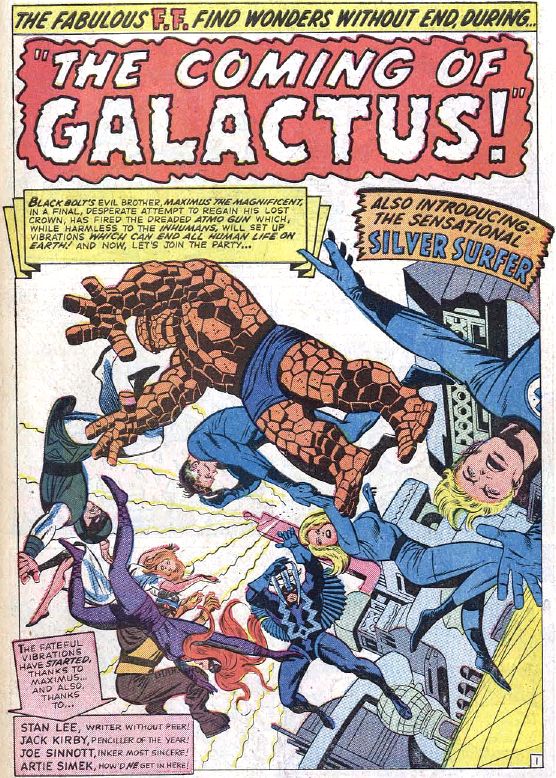
Riesman: Oh, yeah. Not just putting the names in there, but talking up the pencilers, the inkers, the letterers, in the back matter or in interviews. That was remarkable. And a really menschy thing to do, this idea of providing more visibility and credit to people who were, doing this underpaid, under-appreciated job.
But the fact was it was still underpaid! And people were often not being paid for the work they were doing. They were being paid for just doing art, when, in fact, they were the primary writers on the comics as well. Of course he’s this unbelievably good salesman, and yet he didn’t say, “hey, look at me, Stan Lee, the world’s greatest salesman.” I mean it was implicitly what he was doing, but that was not what he gave himself, plaudits and laurels for. He was not saying “my greatest achievement is that I sell things or that I edit others well. He said his greatest achievement was he was a great writer and a great ideas man.
Those things in some ways are true. In some ways they’re very doubtful. But for me, it is sort of weird and maybe sad that he set himself up so, so much higher than he arguably was, and sort of leaves his legacy open for criticism. If he had perhaps rearranged his priorities, it might not have been.
Check back tomorrow for part 2 of our interview with Abraham Riesman on his new biography of Stan Lee.



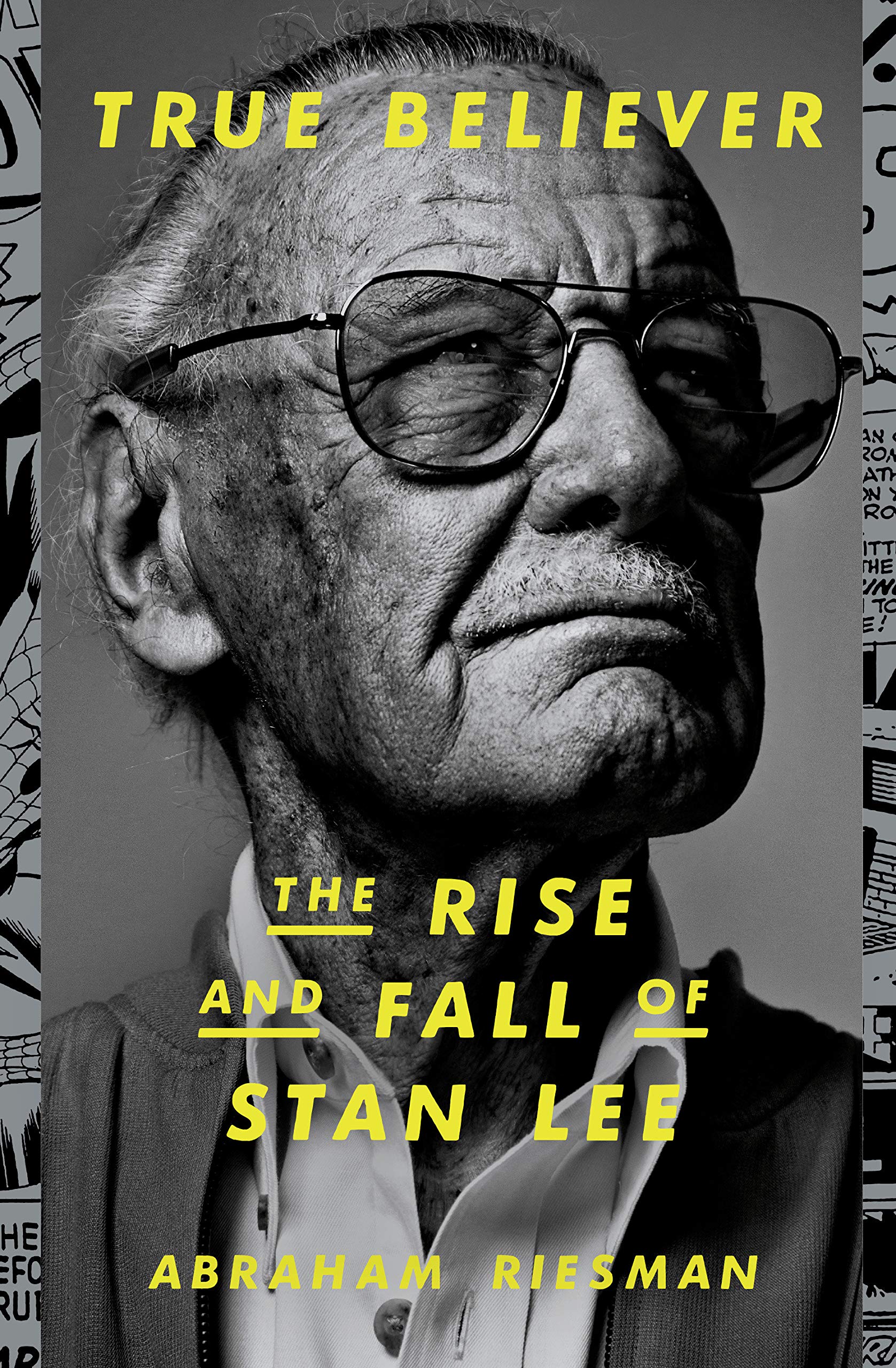
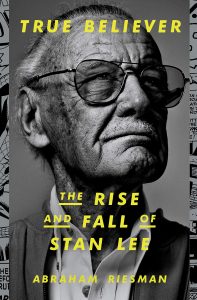
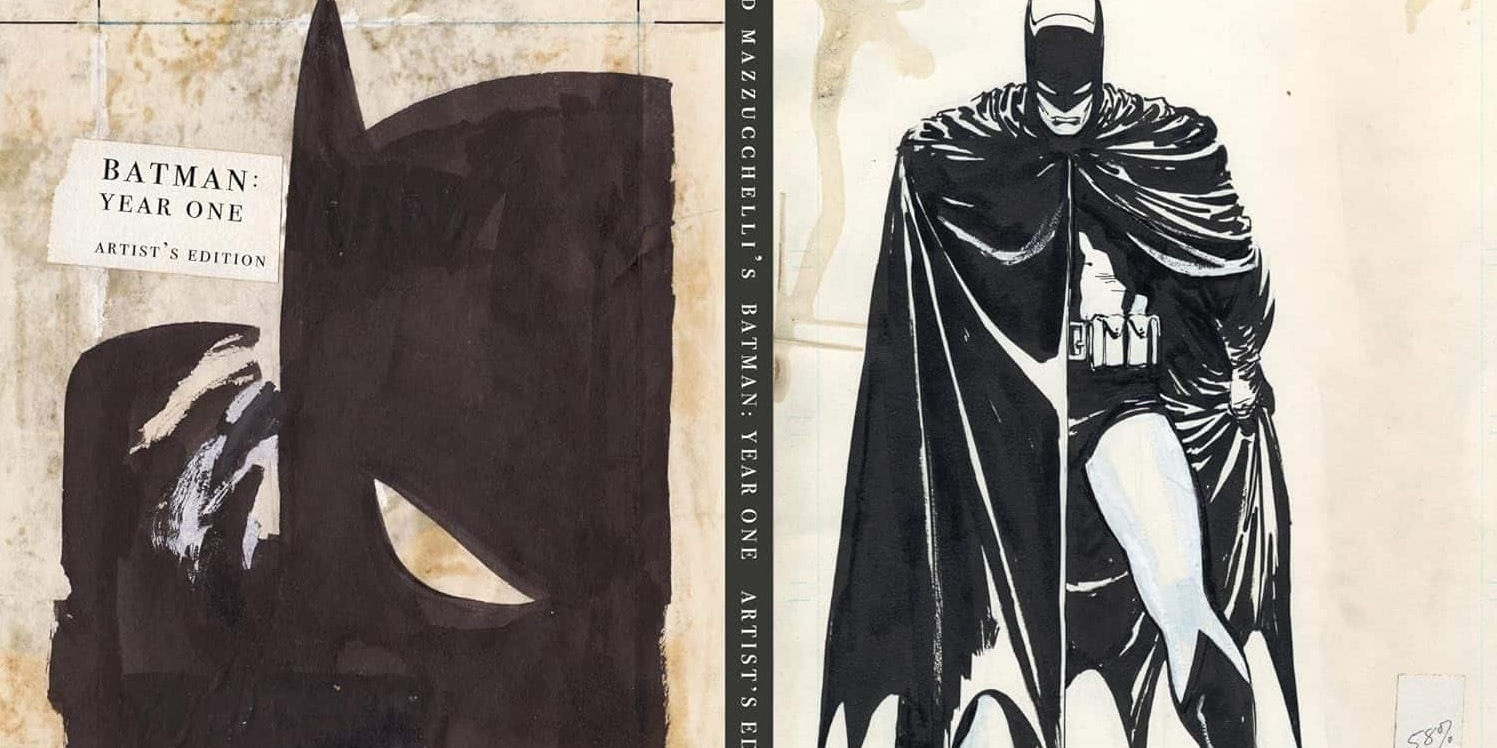
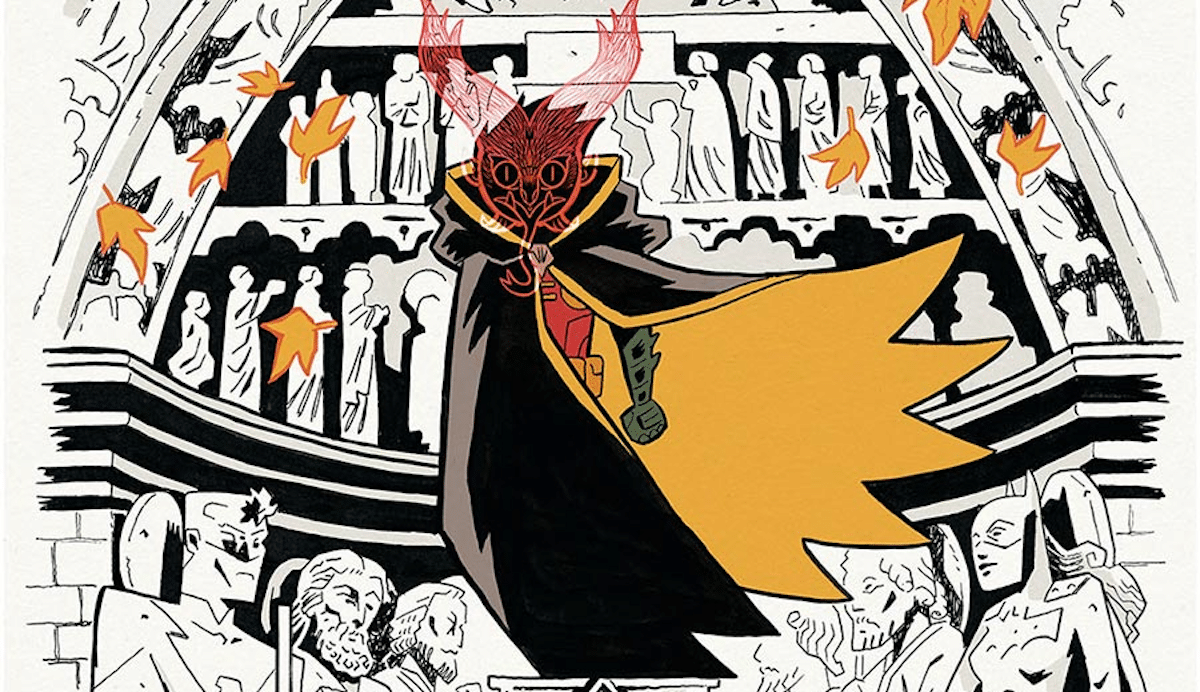
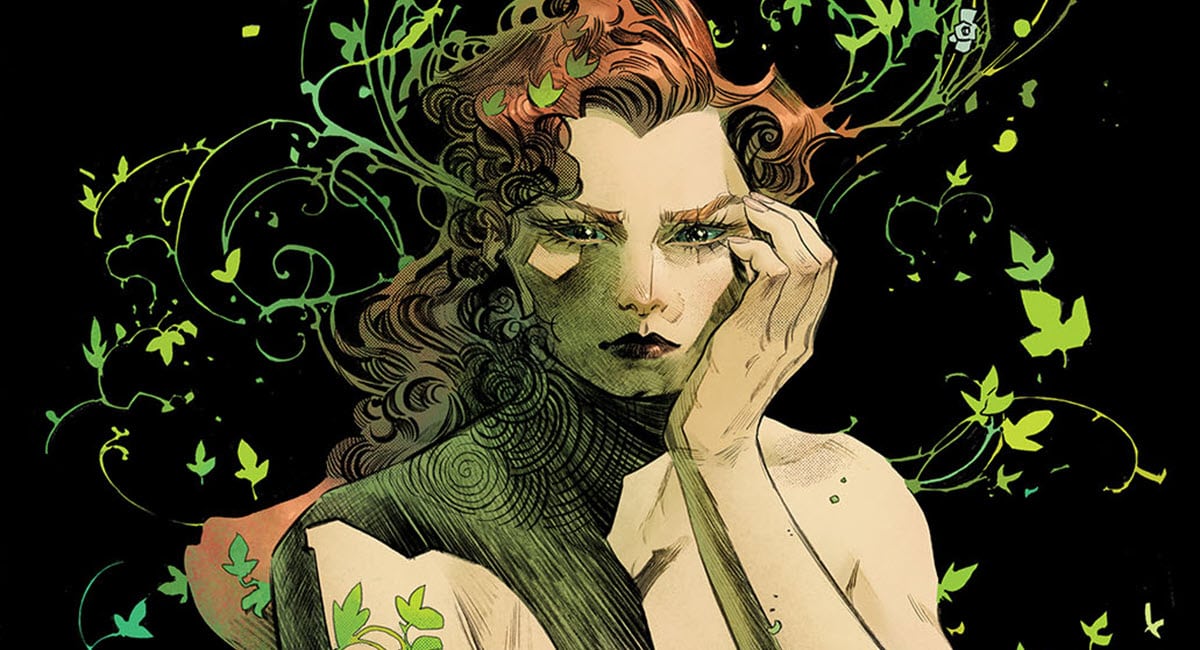






The Peter David & Colleen Doran graphic novel memoir was offensive. Fingeroth’s was ridiculous (my friend always points out that when Stan Lee’s 1968 statement about Doc Strange (‘Twas Steve’s idea) is brought up in the book, Fingeroth immediately follows up with: “but it’s unclear what Stan MEANT by that”). This book looks exciting for tearing away the myth fans have projected ONTO Stan who, I agree, was a great Editor. Very good point from the Author that Stan’s only real good “hot streak” was when Kirby was bringing all these concepts in; when Kirby goes to do 4th World stuff, Stan falters and stops writing.
What, are you suggesting Stan Lee isn’t responsible for Thor being the son of Odin? ( https://bleedingcool.com/comics/recent-updates/the-stan-lee-deposition-on-the-origins-of-the-marvel-universe-for-kirby-family-vs-marvel-lawsuit/ )
comicsbeat.com obviously is a sensationalist junk website like TMZ. Even spitting on the legacy of a deceased man is not a taboo here. The author of this book is a disgusting vulture, trying to make a name of himself by soiling Stan Lees name. Keya Morgan which provided “material” for this abomination book is indicted for elder abuse of Stan, hopefully he lands in prison. The interviewer here is incompetent, he claims that the author spoke to “everyone” who came into contact with Stan, then he gets corrected that many people didn’t want to have anything to do with it and replies ” I realize that you couldn’t speak with everyone”. If you would have realized, then you wouldn’t have said that, you clueless hypocrite. “The rise and fall of Stan Lee”, what bullshit, there was no fall. A zero-talent parasite is claiming that Stan had more ambition than talent, you don’t know what talent is. No decent person with buy this shameless garbage and everyone who does should be ashamed to tarnish a man who isn’t alive anymore. It’s easy to speak bad things and lies about dead people, because they can’t defend themselves anymore.
*No decent person will buy this shameless garbage
The “look at Stan’s work without Ditko or Kirby or Romita Sn or Don Heck* and its not as good” line of reasoning gets a lot of traction, but too many folks forget to do the reverse too. What were these artists like when working with other scripters?
Its clear that Kirby was just as good at coming up with ideas when working at the distinguised competition, but his dialogue was pretty clunky most of the time , he had just as many character misses as hits and a lot of the fourth world stuff only started to really work onceother people starting cleaning it up.
Meanwhile, the onky character Ditko created elsewhere that any body outside of hardcore comics fandom may have heard of is The Question (maybe the Creeper) who again is more well known from when he was reinvented by someone else.
Romita has more post Lee creation credits of merit indeed *both he and Heck deserve far more credit than they often get. Yes, Kirby was the primary ideas man, but Romita and Heck, and maybe Everett as well, contributed significantly more ideas and lasting suporting characters to the Marvel universe than Ditko did, who basically gets held up alongside Kirby just because of Spider-Man. And yes, Spidey is Marvels no 1. Character, but again, a lot of his popularity cam post Ditko.
**A lot of the argument just comes from the use of the word writer to mean story cteator as if comics are novels. If you just accept that the stories come from editor, writer, illustrator conferences, the illustrator then creates the bulk of the story, and the writer scipts the work it all becomes less of a big deal. Character creation then becomes a matter of how the characters personalities were formed, and the work there becomes more even. Esspecially when you consider with marvel it was the editors job to make sure characters were written consistently across mutiple books, often with different illustrators.
So yeah, the argument can definitely be made that Lee wasnt as good at other points in his career without those artists but sincein alot of cases the same can be said of the artist the obvious conclusion is that it was the team that did amazing work during that first wave of greatness.
Excelsior
Somehow I get the feeling that you wouldn’t be this upset if the deceased man in question were Kirby or Ditko.
Ditko did more than Spider-Man and Dr. Strange. He created the more sleek Red & Yellow armor for Iron Man and is also responsible for having Bruce Banner turn into Hulk when he got stressed/angry.
Then there are all the villains and cosmic entities he created while on Spider-Man and Dr. Strange.
Then you need to realize he left Marvel around 1965, so that is a lot in a fairly short period of time.
He did create some characters for DC (Hawk & Dove, Creeper, The Question) plus his work at Charlton, re-inventing the Blue Beetle to the Ted Kord version.
It’s true he might not have created the same amount of great characters throughout his entire career (who does?) but he also learned at Marvel that creating characters for comic publishers gives you no ownership/control over them and promised compensation for licensed media usage was bullshit. So he might not have been too eager to create new characters. That he created any new characters after 1965 should be seen as a blessing and perhaps also recognized as merrily a way of keeping himself working.
I do agree that Romita and Don Heck in particular doesn’t get the credit they deserves in terms of the characters they’ve co-created.
Stan himself admitted in print that Ditko was co-writing ‘Spider-Man’ for (at least) the 2nd half of his time on the title. After much insistence, Ditko correctly received credit as “co-plotter” — but no extra salary. That fact alone (and it’s one fact out of many) means that Lee’s legacy must be reassessed.
Looking forward to buying this.
Stan’s work outside of comics isn’t any good? On the contrary, I think it’s his best — God Woke is an incredible poem; Stan Soapboxes were epic; even his first text back-up piece in the 40s was great, to my mind. And whatever you feel about the truth of it, Origins of The Marvel Universe is well-written and entertaining. In fact, the only thing I don’t enjoy reading of Stan’s is his comics — I’ve only ever liked Amazing Fantasy #15 and the back-up in FF #50, and even both of those were quite clunky. I don’t think he understood the medium well, whereas I love everything else he wrote, down to just introductions to other books (the intro to the Les Daniels Marvel book sticks out in my brain decades later).
Whereas Kirby and Ditko never showed any writing ability when they weren’t with Stan. Even defenders of 4th World admit the writing is terrible.
I just find claims like that — that Stan never showed any promise as a writer outside of a few years in comics — at the very least highly subjective, not the “cold hard facts” the author purports to be reporting. Go read God Woke and tell me Kirby did that.
Similarly when the author says things like “There were no unbiased people who could confirm that Stan came up with anything” — oh, so there is “evidence” (where first-hand accounts are all you’re using for evidence), but you just reject it — so are there unbiased people who claim Jack or Ditko had the amazing creative streak that you say is rare? Like who — Kirby himself? Kirby’s assistant?
Hey maybe you’re right and Stan didn’t do a damned thing, I don’t know; but if you think you’re not biased, you’re deluding yourself — this interview shows nothing but barely-subconscious bias.
Comments are closed.